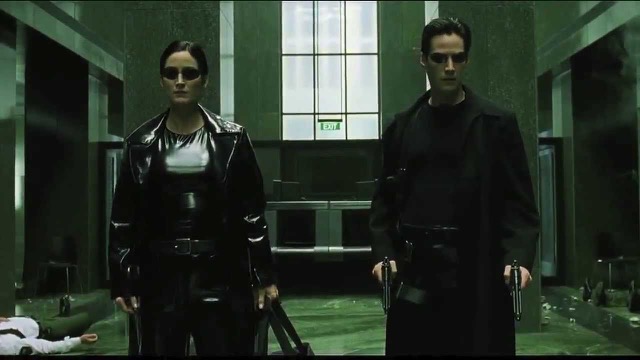Twitch, Youtube, and "New Media"
The online landscape has shifted drastically over the course of the last five years. Websites and blogs used to be king, with dedicated reader bases coming back day after day to read the newest posts. There was a golden period of growth where anyone could make a website, and if they were dedicated, it would probably do pretty well. Coverage of games was done extensively through written articles, blog posts, and reviews, and there was a stable, if slightly adversarial, relationship between these companies and the companies that made games. Sites would get early review copies of games, access to developers for interviews, or in-depth press kits to help prepare coverage. In return, websites agreed to not post coverage of these titles until an agreed upon date. An equilibrium was reached.
Then YouTube came along and changed things. By virtue of its audience, content creators on YouTube relied on heavily edited videos, showing only the most exciting moments of whatever they were talking about. The massive Let’s Play community grouped around different games, and audiences had truly immense amounts of content at their fingertips. Search the name of the game, and they can find dozens of highly edited, exciting videos making it look to be fun, or small communities of super fans religiously playing and dissecting the game for years afterwards. You can see it with Counter Strike, or League of Legends, or DOTA, or Overwatch.
Companies noticed, and they took advantage of it. Many of these videos bordered on advertisements already in how they catered to audiences to draw them and in keep them interested. YouTube content creators live and die by audience retention, so they want to show viewers that they can come back day after day to consistently exciting and engaging content. Companies started reaching out to these channels, sending them free promotional materials or copies of the game, and any mention of this becomes positive advertising for the company. If someone receives a special Skyrim hat from Bethesda and shows it off on their YouTube channel because they feel special, it alters the appearance of Bethesda in the mind of consumers, changing them from a faceless corporate entity into an attentive and caring company that looks after its fans. They don’t have to ask for positive press from the creators, because any mention of them is good.
Compare this to the way in which video game websites handle the same situation. People don’t want to read an article about a special Skyrim hat that the author got from Bethesda, because it reads like an advertisement. Swag, or promotional materials, have been a part of the games industry, and indeed many others, for a long time. But unless the readers can get the exact same item, they don’t care. They view the pieces published by the website to be the statements of that website, regardless of who wrote them. There is less of a connection between the reader and the writer in most cases, and with this personal connection lost, appeals to the consumers work differently. Websites (outside of fan websites) don’t care about swag, because the audience doesn’t care about swag.
As YouTube has gotten larger, smaller content creators have slowly been getting crowded out. The platform enormously favors those with the time and the budget to produce consistent, daily, high quality, ten-minute plus videos, and the number of channels that can do this is low, in the grand scheme of things. Combine this with the too stringent DMCA policies that make it much too easy for a video to be taken down or removed from monetization, and many creators have been forced to diversify.
Twitch was there to pick up the pieces. Communities are only reinforced on Twitch, which shows categorizes livestreams by what games are being played while highlighting high profile streamers. However, on Twitch, channels did not have the benefit of editing to support their content, and personality reigned supreme. Tight knit communities form around streamers as they interact with their audience every single day to the point where a relationship is built. And companies have taken advantage of this. If a streamer is allowed to stream a game early, they are given a sense of exclusivity, and an implicit recommendation of the game from them to their fans. Anything that the company does for the streamer, from joining them on stream to sending them packages of promotional material, brings that company into the community.
There is nothing wrong with marketing or advertisement. It is how content creators can survive, and it is an integral part of the development and release of a game. It is a very necessary force. Print and online media have a whole host of ethical questions relating to companies that are being covered, ostensibly impartially, while these outlets are simultaneously running advertisements for these games. It’s a conflict of interest, and one that needs to be tackled and disclosed.
The issue with marketing comes when it stops appearing as marketing, when companies are manipulating fans and creators into giving them good press without revealing it, when content creators are being paid to create promotional videos without disclosing these facts, when the influence cannot be seen.
So where does that leave sites like ours, sites that don’t exactly fit into any of these molds? How do they survive? Do they attempt to extend their reach, diversify into different areas, start advertising the products that they are covering, or do they hunker down in their niche, trying to carve out a spot? The second is, without a doubt, more difficult. Staying truly independent is a challenge that all websites will face, and whether or not to stay that way is a question that every site will have to answer at some point during its lifespan. It is a question that we struggle with every day, and it is one that we eventually hope to answer.
____________________________________________

Tom has been writing about media since he was a senior in high school. He likes long walks on the beach, dark liquor, and when characters reload guns in action movies.
You Might Also Like:
Situational Invincibility and How it is Ruining Action MoviesExpectations vs Reality
What is Death of the Critic?
_____________________________________________
Anatomy of a Scene - It Follows

Something is following you. Hunting you. Heading in a straight line for you at every single moment of your life, awake or asleep. It can take the form of anyone, whether that be a stranger or someone you love. It wants to kill you, but it also wants to hurt you in the process, and this haunting presence is always lurking at the back of our minds, behind every corner or walking extra.
The Noble Savage
As a follow-up to our discussion on “The Other”, let’s look at a more idealized version of the same concept that is popular within literature, books, movies, and games to this day. The Noble Savage is the audience’s idea of an outsider. It is the romanticized depiction of a character untouched by the ills of modern society. They embody the traits that we idealize while at the same time being utterly foreign to us. Read More…
Sequels and Reviews
Earlier this week, we publish an article about sequels and how they are viewed in relation to their preceding works, and we wanted to take the time to clarify our position on how we address this concern when writing a review for a sequel. While we do our best to look at each work on its own merits, we cannot discount significant advances or steps back compared to other works within the same franchise. Read More…
Expectations vs Reality

In these times, sequels are the name of the game. Finding a franchise that can be used over and over again to draw people to stores and theaters. The same can be said of music alongside games and movies, as fans eagerly await the newest release by their favorite artist. The only difference is where the name recognition lies. For games it might be with a franchise or a studio, in movies with a lead actor or director, and in music it lies firmly with the artist.
The Other
We’ve talked about the Other and bothering before, but it is a topic that deserves further examination. The Other is all about setting up the relationship within a story, about creating conflict and division. And it can be used in multiple different ways. It is a rather simple idea as well. The other is different. They don’t belong. They are strange and don’t fit in for some reason. It could be any number of things: their race, gender, sexuality, nationality, religion, class, species. Anything that differentiates them from the norm as defined by the story and it’s protagonists. Read More…
Updates and Reviews
When we are reviewing a game, we have a unique issue that we don’t encounter with any other type of media. When a game launches, rarely will it stay in the exact same state over the coming days, weeks, months, or even years that it will be in the public. It will be updated and changed over time. Sometimes these updates are small: balance tweaks to multiplayer, text fixes, or subtle adjustments that no one will ever really see. But on the other hand, some alter graphics, story, gameplay, or more. At the root is this idea: patches are fixing something wrong with the game, no matter how big it may be. So how do we deal with this as reviewers. Read More…
Anatomy of a Scene - The Matrix

It is harder than you might think to make a great action scene. But it isn’t that hard to make a good one. Just get an engaging actor, give them a big gun, and a crowd full of goons to let loose upon. A scene like this is entirely serviceable, but many directors try to make it more complex by incorporating too many characters, with too confusing of action, and all of a sudden, you don’t know what is going on anymore. What was once a good action scene has become terrible. A good scene needs to remain clear, no matter what. You should be able to identify the positions of characters and how they are moving through the world, without unnecessary establishing shots bogging it down, all while remaining compelling and heart pumping.
The Tragic Hero
When we are looking at the construction of a character, it can help to understand some of the basic archetypes that many authors pull from. We recently talked about Shakespeare as a cultural touchstone, and if we look at many of his plays, we can find evidence of a “tragic hero”. The tragic hero is an age old character archetype describes by Aristotle as:
“A man not pre-eminently virtuous and just whose misfortune, however, is brought upon him not by vice and depravity but by some error of judgement, of the number of those in the enjoyment of great reputation and prosperity; e.g. Oedipus, Thyestes, and the men of similar families. The perfect Plot, accordingly, must have a single, and not (as some tell us) a double issue; the change in the hero’s fortunes must be not from misery to happiness, but on the contrary from happiness to misery; and the cause of it must lie not in any depravity, but in some great error on his part; the man himself being either such as we have described, or better, not worse, than that.” (The Aristotelian Concept of the Tragic Hero) Read More…
Humor in Games
Humor is really hard to nail in games. Its either hit or miss, and when it misses, it can be bad. There are a few games that manage to absolutely nail it (Day of the Tentacle, I’m looking at you) but so many more just absolutely flop, and in doing so, manage to pull you out of the experience entirely.
In the last month I’ve played two big games that have been really bad about it. Ghost Recon: Wildlands and Mass Effect: Andromeda, which both tried to work semi-edgy humor in alongside their more serious stories to varying levels of success. Every time I heard one of these bad jokes, it pulled me out, actively reminding me that I was playing games, poorly written ones at that. Read More…